India is a country where the heart rules over everything. Shantaram
Often, success in our minds is associated with life in Europe or America, but not with India. From the environment you constantly hear polar statements: either it is poor and dirty, or beautiful and there are a lot of tourists. There is only one way out - to go and draw conclusions on your own. But very few decide to move to such an exotic place, very few can cope with such an excellent culture, very few are able to adapt and go up. Our hero fell into this minority and took a chance. Dmitry moved to India last June with his family. How to persuade your wife to go on an adventure, maneuver on the brink of cultural stereotypes and survive quarantine without consequences - in an interview with Director, Software Engineering EPAM Dmitry Galyuk.
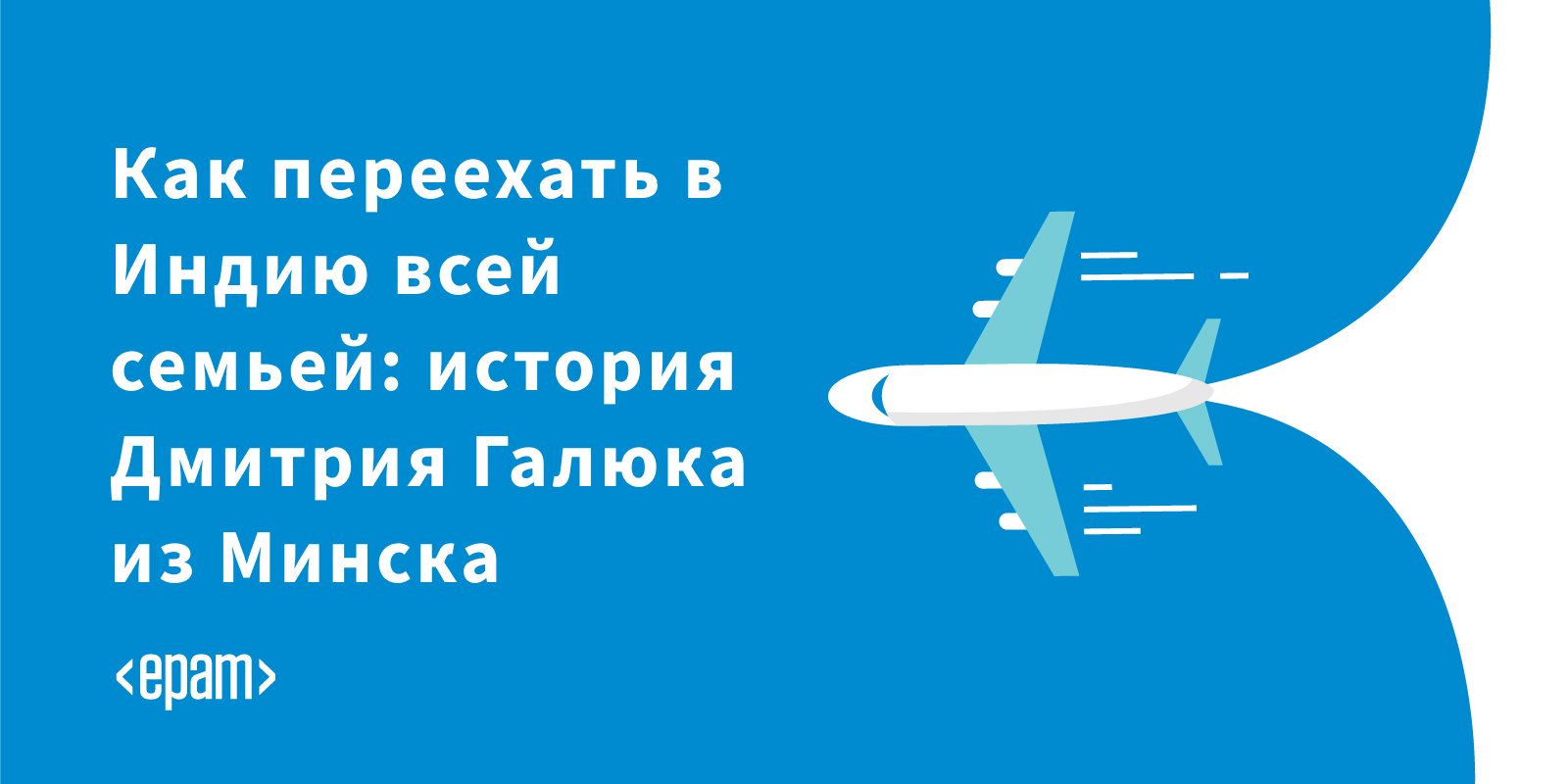
About myself
I have been working at EPAM for almost 15 years, now I live in the city of Hyderabad and lead the program for the integration of the Belarusian and Indian Delivery centers. This means that we are doing joint projects where teams from India and teams from Belarus work. Their management is a separate issue, since we have different systems and approaches to how work can be organized. My task is to find projects for cooperation of both parties, to convince account managers and clients that such an approach makes sense, to select a team and monitor the implementation of the project (to solve some organizational and cultural issues).
About India
The first time I came to India to read the training 4 years ago. My colleague and I were brought to a good expensive hotel, and then to the office. That is, we did not really have time to see India. Later we were taken on an excursion to the historical center of the city, to the market. We, as tourists, followed the driver and guide. I remember that it was very hot and humid, I remember the feeling that I was in another world, where you can find absolutely everything.
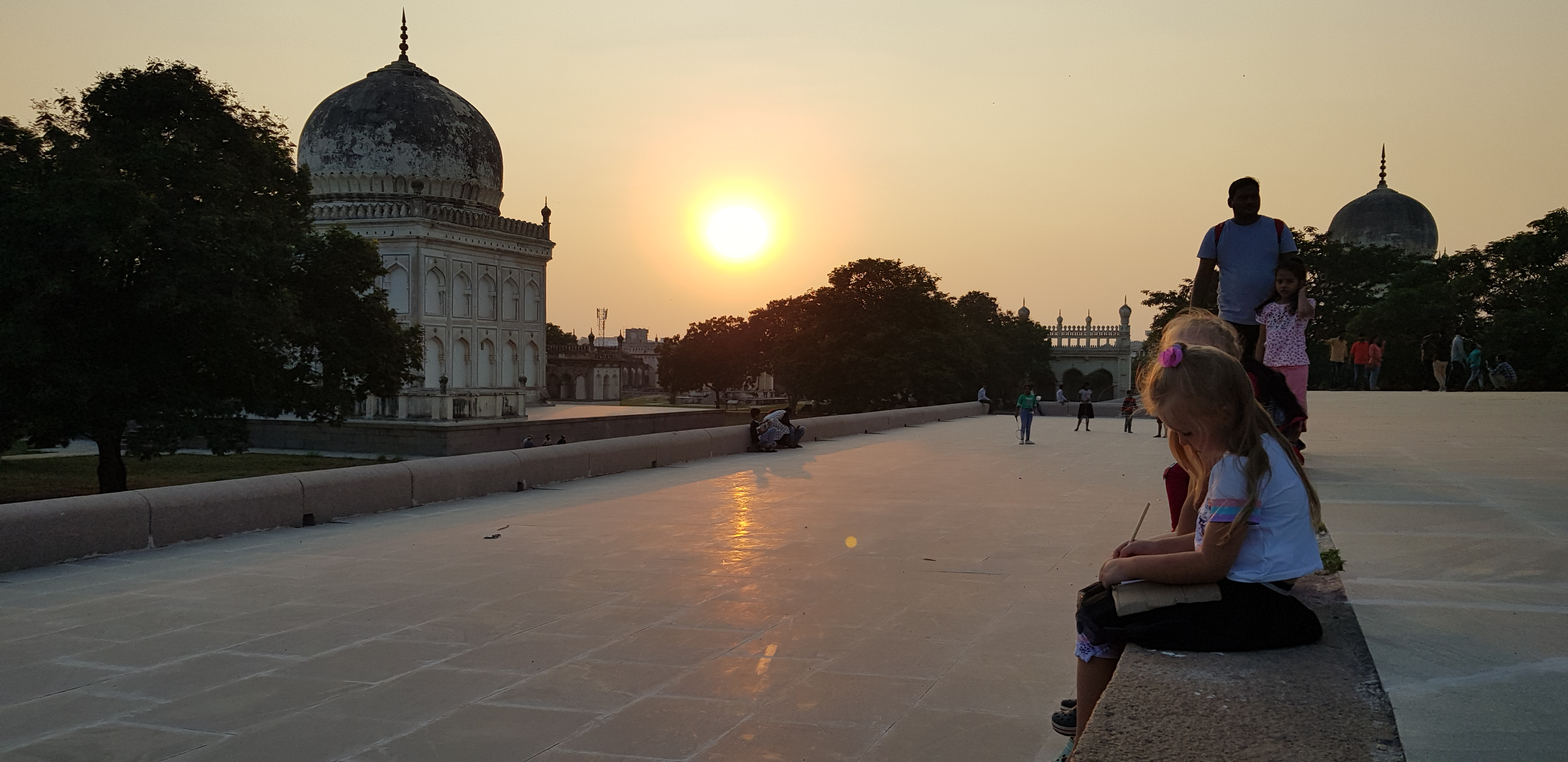
Moving
How did it all start?
Two and a half years ago I started working with the Indian office. Helped integrate Indian technology practices with Belarusian ones. At that time, I had over 10 years of experience behind me. In the Belarusian EPAM I knew absolutely everyone and how everything works inside. All processes were conducted remotely, being in Minsk. He flew a lot to India on business trips. A year before moving, I spent about a quarter of all my time outside Belarus, and then I realized that I don't want to spend so much time on the road, that working remotely is ineffective and it's easier to move here and be there. I have already lived in India quite a lot, I was familiar with everyday and cultural peculiarities. I came to the Indian leadership and said: "But for some reason I wanted to move to you." And they: "Great, come." The most fun was talking to my family. I told my wifewe watched some Indian movies and decided we could try.
How long did the move take?
In my case, the longest stage is negotiating a job offer. It is not as easy to hire in India as in Minsk. Here, a special consulting agency should study your contract and make a breakdown of the contract: what taxes you will pay, how much will go where. It takes time. This process took me 1.5-2 months. And then everything went quickly. In the embassy, I stamped everything in my passport in 3 days. In fact, in 2 months you can safely prepare everything for the move.
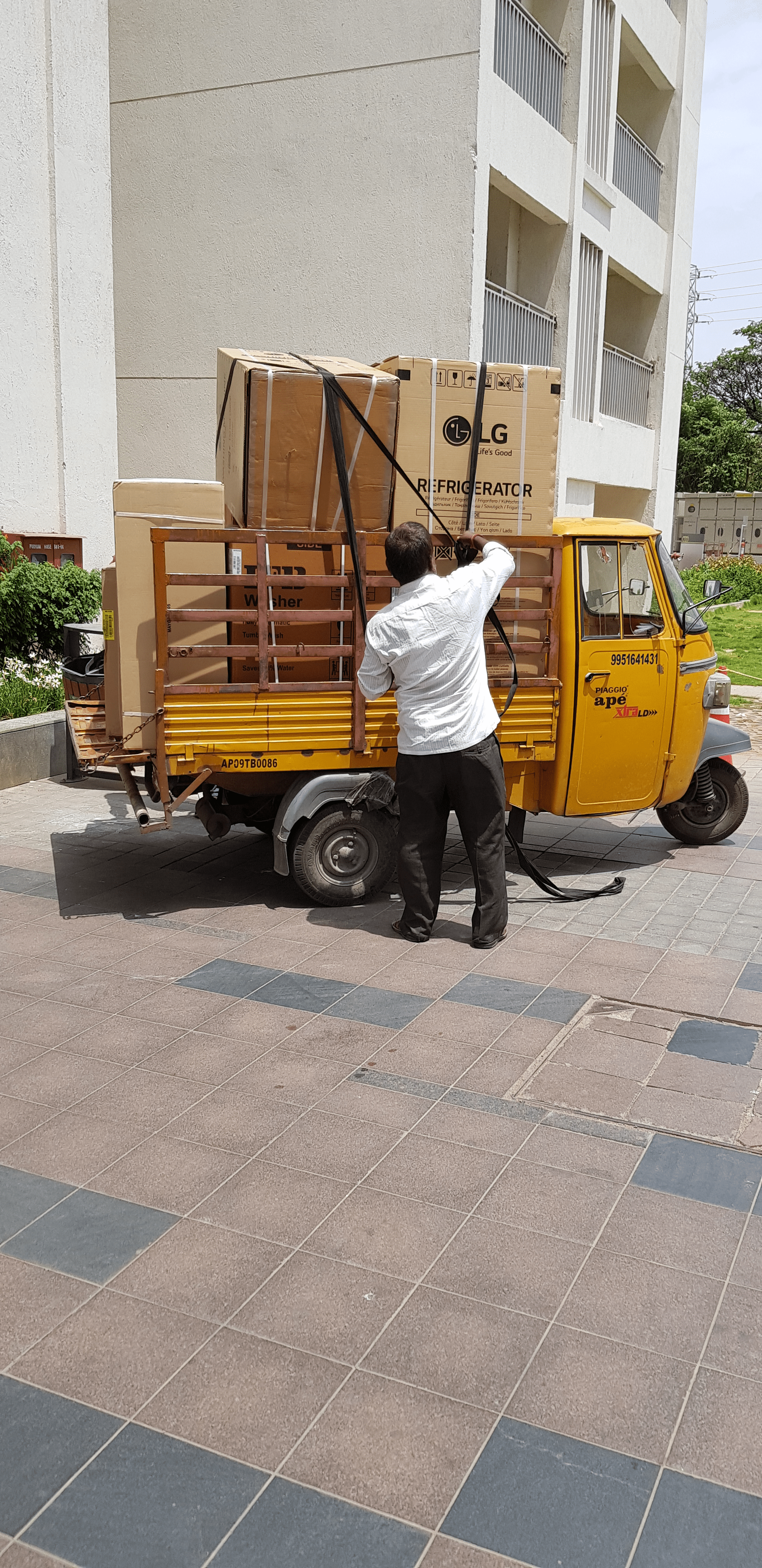
What has the company helped with?
The company took over the paperwork. They gave me instructions. I sent everything I needed by mail and that's it. The main thing here is to do everything on time, so as not to stretch the process for months. I coped with everything very quickly in Minsk. Then he came to India, within two months received a tax number and opened a bank account. If you do not slow down and do everything that you are told, then it is fast.
We didn't take a lot of things with us. Only summer ones, it's hot here. Toys for children, a first aid kit, probably everything. I immediately moved to the apartment where a girl from EPAM lived before me, so the dishes and furniture were already there. If we were unlucky with housing, the company for the first time would pay us a hotel, which also has everything.
How difficult was it to say goodbye to all those around you in Minsk?
I finished building the house in October, we moved there in November, and in June we moved to India. That was a pity. And so, we initially did not plan to leave forever. For six months or a year. Now it turns out 2 years. But this is not for life. Of course, it was hard, at first you come here, you don't know anyone. On the other hand, the Russian-speaking community in India is huge. To be honest, here we began to communicate much more and invite you to visit. Even during the quarantine, a Russian-speaking family came to us twice a week. We talked, shared news and tasted Indian food.
How did the children handle the move and integrate into the new environment?
The children go to a very good Indian school. There are 2 types of study programs here: Indian and International. My children have an international one: one daughter graduated from kindergarten and moved to the first grade, and the second to the third. That is, in Minsk they spent 1 year in kindergarten and 1 year at school they studied English, but this is nothing without practice. Little by little they pulled up here, they understand the teachers, do the assignments. The older daughter even has one girl in the class who speaks Russian, the younger one has no Russian speakers.
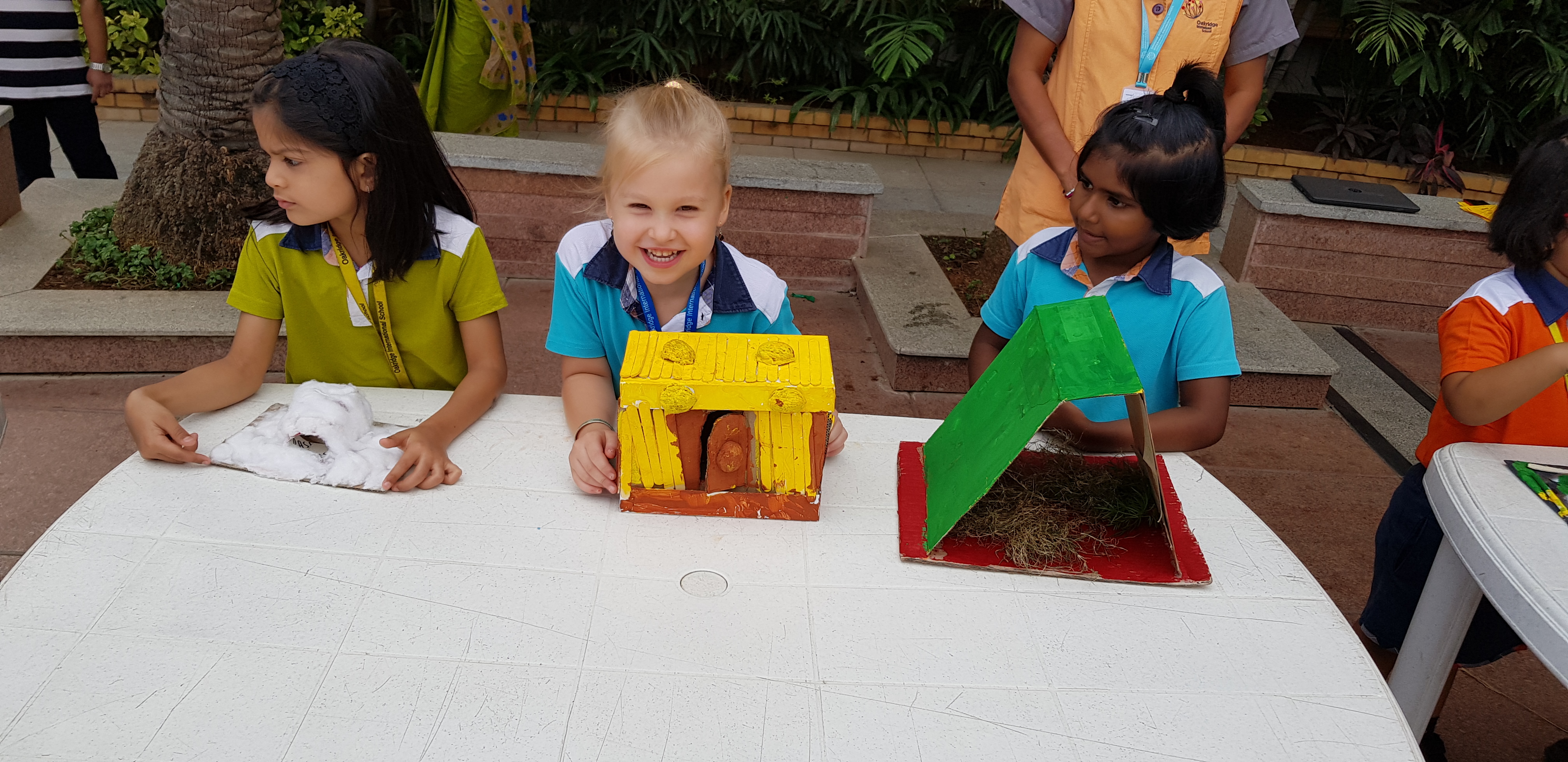
They have integrated, of course, it is still difficult for them to master the program, but the school is just bombastic. With campuses, with their buildings, parks, fountains. Just like from American films! This is another level. There, near the entrance on a tree, a huge house was built, 3 swimming pools are constantly working. For example, my children also went to a private school in Minsk. She occupied one floor of the business center. It was cool, very interesting, but compare the scale. In general, children like it here. I have never heard from them “we don’t want to go to school”.
What can you say about the cost of living in India?
The prices are relatively low. For a school for children, we pay $ 7000 per year, and you can find it for $ 3000. Like in Minsk. Housing is the same story. You can rent a guesthouse for $ 200-400 (a great option for those who do not have a family), or you can rent an apartment in a community (a residential complex with a fence and security), but it will be more expensive - $ 500-700. I have a very expensive community. I go to work on foot, but I also pay 1.5-2 times more than I could if I lived somewhere farther away. On the other hand, I'm not ready to spend 4 hours a day on the road, as I did during the rainy season, when I lived in an old apartment (yes, we moved closer to the office).
It turns out that in India you spend more money than you would spend in Belarus?
Yes, but I'm not here alone, but with my family. Before moving, I calculated everything, negotiated. The company pays for the apartment. In fact, this is what you should do when you go to another country. You must clearly understand what your expenses will be and negotiate with the company what part it will take upon itself.
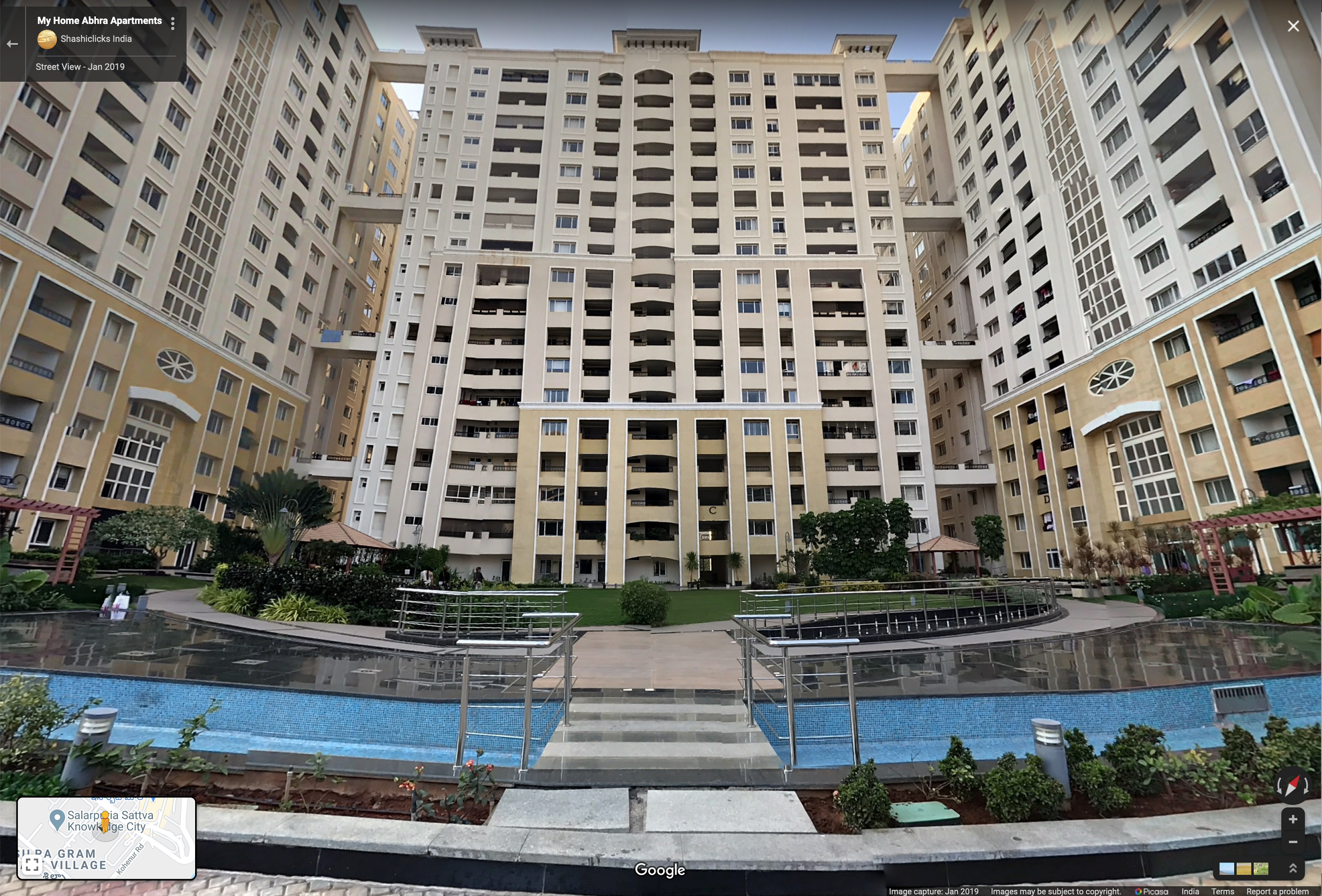
Since we returned to the topic of conditions, from what position in EPAM can one transfer to another country? I heard that the relocation program is only available to senior developers.
Everywhere is different. It all depends on the project, you can switch to some from the position of middle.
What conditions need to be met? Work for a year at EPAM, for example?
Not necessary. EPAM has a hire to relocate program. When, for example, we hire a person from Moscow to Minsk. The company helps with the documents, and the candidate moves from the start. To India the same way. "We need to work for a while" - this is most often about the states of speech. Because there are visa restrictions. If you have an open position and money is on the table, then not bringing a person means losing a lot of money, and no one needs it.
About stereotypes
Often give back to interviews when they hear that position in India?
Basically, of course, they say: "No thanks, we don't want to." Naturally, India is not the most popular travel destination. I recently hosted a webinar to which about 100 people were invited. 3-4 out of 90 who came said: "We are interested, let's look at the options." In the end, only one of them came up to us. We are still trying to transport it, but so far the epidemiological situation in the world does not allow it. But I really want the client to look at our guys, how they work. Perhaps it will allow you to work remotely.
Why do you think people have such an attitude towards India? Because they know little about this country?
Sure. What do we show in the news about India? How do the police beat people with sticks in the street? You see lines for rice, unwashed Bedouins, and a pissing boy. All this is in India. But, again, not everywhere. People only see one side. Or they go to Goa and see tourist India. And that's not it either.
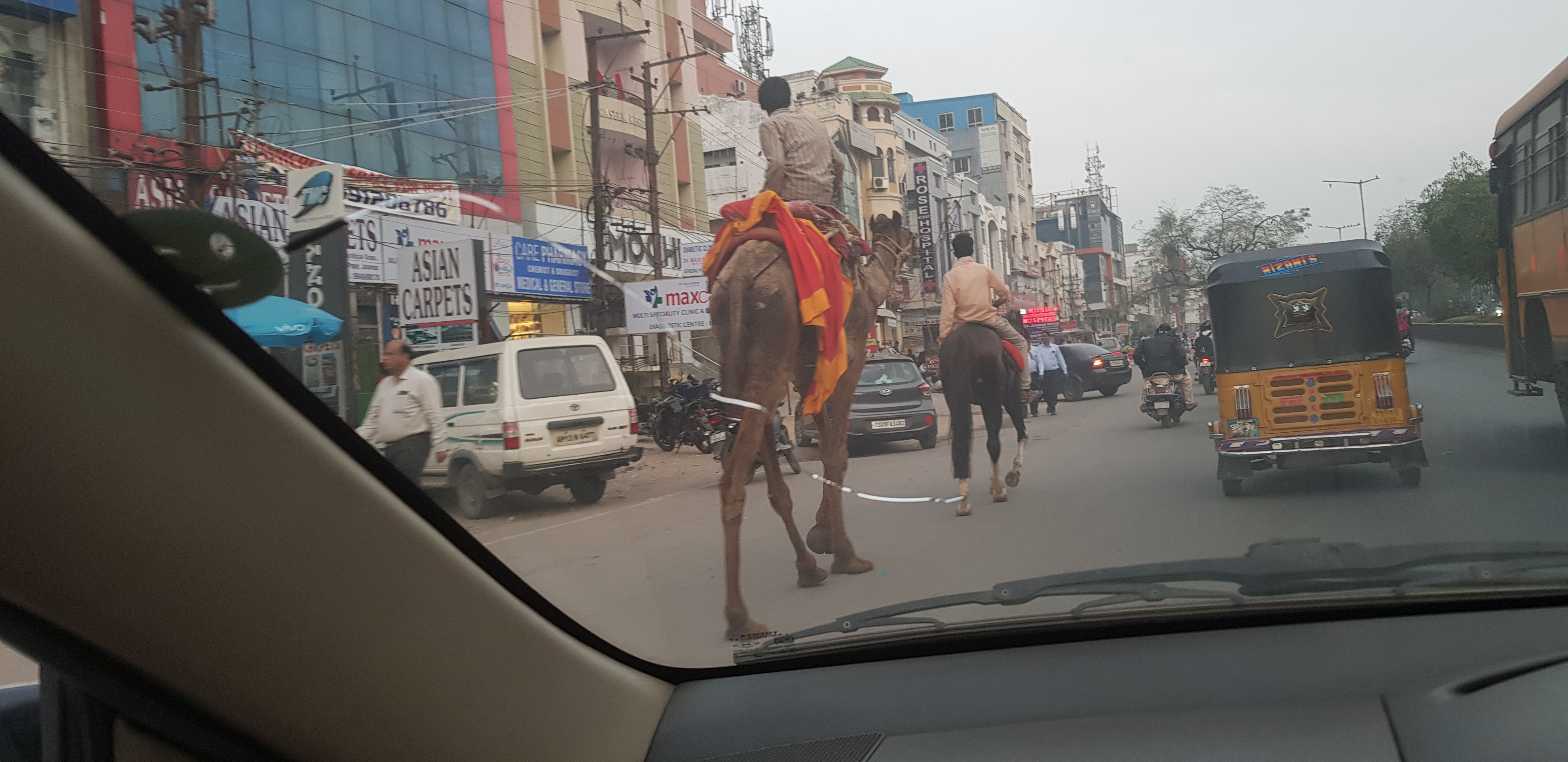
People not there just look?
Yes, these are just biases. You have to go here and see what it is. Obviously, India is not Singapore. Our campuses are modern and beautiful, but not Singapore. Much easier. Because Indians do not bother, everything is much simpler with them.
Who won your battle: expectation vs reality?
I didn't build any expectations. I understood that I, like everyone else, had some baggage of prejudices about the climate, cleanliness, food. That it is hot, dirty, dusty in India, that the streets stink here. But India is very different. And for some part of the country, all these beliefs are true, but for another part they are not. For example, I live on a campus in a decent IT area. There are no such people in Belarus, and I don't know when they will appear. Everything here is modern and cool. In this case, you can go to the old part of the city, where centuries-old buildings are without sensible sewage. And there is a completely different life. Everything is different. What you want to see is what you will see.
Any tips on what to read and see to dispel stereotypes about India?
Shantaram... This book, of course, is old and a lot has changed now, but it tells very well about the life and attitude of Indians. I advise you to look at tourist vlogs, for example, Varlamov . In general, read and listen to those who liked India.
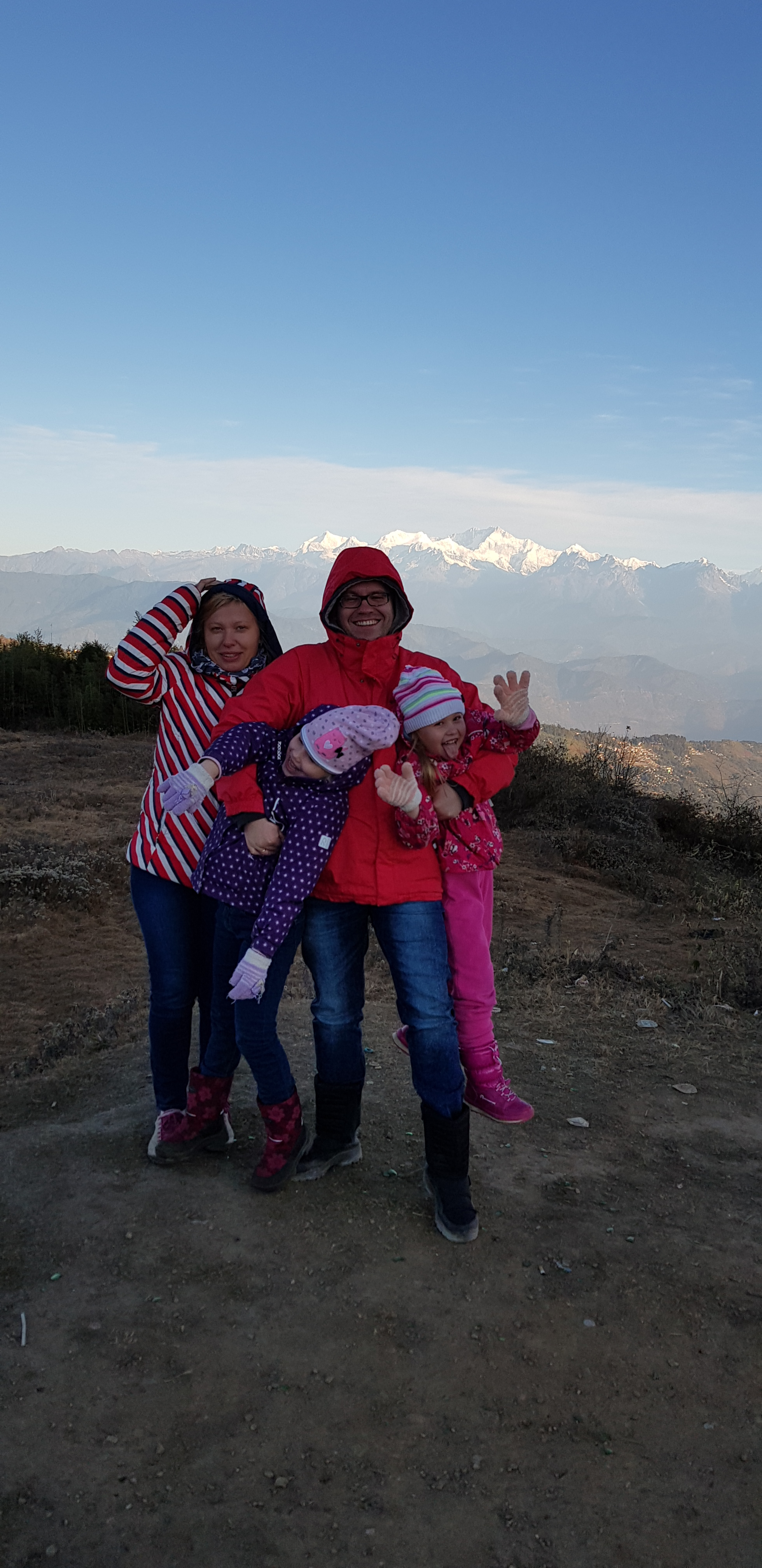
About cultural differences
Let's talk about culture. How do you like the Indians? How do they differ from Belarusians?
Everyone (laughs). In fact, people are completely different. Open and non-folding. If you need something, he will come up and ask. When we first moved, we were like tourists - it’s in the crowd, and you can see it in your face. They were constantly trying to take selfies with us. Then, when you get used to it, you already look like a tourist disappears, you go about your business and you are not noticed in the crowd. With selfies, they practically do not stick. Indians really smile a lot and are ready to help you in everything. Very responsive and friendly, there is no aggression. When you are a foreigner, the attitude towards you is different. Everyone wants to chat.
Have there been cases of deception?
Definitely. I remember when we just arrived, we went to the tent across the road to buy fruit. We were fooled in a terrible way. We could leave for $ 30-40 for a couple of bags of fruit, when they can be bought inside our community for $ 4. You need to be careful with money here. They will always try to cheat you. Here's a free tip: just don't go to tourist spots.
Are there any life hacks on how to approach the Indians?
Million. There is about how to work and negotiate with Indians. We have now done a special training on this topic. Therefore, the first life hack is to sign up for an internal training from your company. Second, drop all your defaults, don't assume anything. Forget anything that is obvious, because it is not obvious. The default settings for Indians and Belarusians are different. We proceed from completely different premises, think and think differently. Feel free to ask stupid questions and be sure to explain why you are asking for something. Indians are very friendly, they really do not want to refuse and upset colleagues. Therefore, if you need something, you come and ask: “How to do this? How can you help me? What will you do, what will I do? " Clearly articulate the action plan, it is advisable to write it down and periodically remind it.

The most important thing is to understand what people are doing and why, to understand their purpose. When you realize this, you catch a causal relationship. This applies not only to work, but also to life moments. Just try to calm down somehow and not yell at people. Remember, when you want something obvious at first glance to be done to you, it is not obvious to them, and you need to calmly react to it.
It's like at university: forget everything you were taught about in school. At work: Forget everything you were told at the university. In India: forget everything you knew and start from scratch?
You don’t need to forget what you knew, because it’s important, it’s useful, it’s useful. If we are talking about work, then how we wrote the unit test, so we write them. But we must proceed from the fact that people may have a different attitude to time. Here time passes in a different way, not like in Minsk. No one here ever comes to a meeting on time. It is absolutely normal to come 5 minutes late and everyone understands that. Because here human relations between people, colleagues and partners are much more important. For example, if a person goes to a meeting, but on the way he meets someone, he will definitely stand with him for a couple of minutes and talk. It's okay, they just have a different attitude to time and to each other. Therefore, such passive-aggressive behavior does not exist here. They probably don’t know at all what it is.
About climate, medicine and coronavirus
How do you like the Indian climate?
Hot. But India is big, there are many climatic zones here. Even the south is very different. We live in the center far from the coast and here the climate is dry. The city is located on rocky terrain, there is not much greenery, a lot of dust and constant construction sites everywhere. Another city 3 hours from Mumbai, that is, from the ocean, the climate there is very hot and humid. If we are talking about Bangalore (there is also an EPAM office there), then there is a lot of greenery, due to this the temperature is a couple of degrees lower. But it's still hot.

I marked 3 seasons: from March to July it is summer here and + 38-50. Then there will be a rainy season, and from October-November to March it is a local winter. Very comfortable, 30-35 degrees.
How is India doing with medicine and services?
Everything is fine: medicine here is inexpensive, of sufficient quality. When my wife contracted Dengue fever, I went to the insurance agency. The insurance covers only severe cases with hospitalization. We were prompted by the center where we can turn. An intelligent doctor was caught and examined. The results were sent to us by mail. Insurance from the company covers hospitalization with coronavirus (theoretically, fortunately, they did not check).
WhatsApp and electronic money are very developed here. You don't have to carry cash with you at all. Many local payment systems operate. Delivery is much more developed than in Minsk. Everything works very well. So interesting, India is considered such a poor country, medieval, undeveloped, where sewers are running and people are peeing in the streets. And there is such a thing, but, on the other hand, business centers and IT districts are being built here. I would say this: in India, if you have money, you live in the modern world, if you have no money, you live in the Middle Ages.
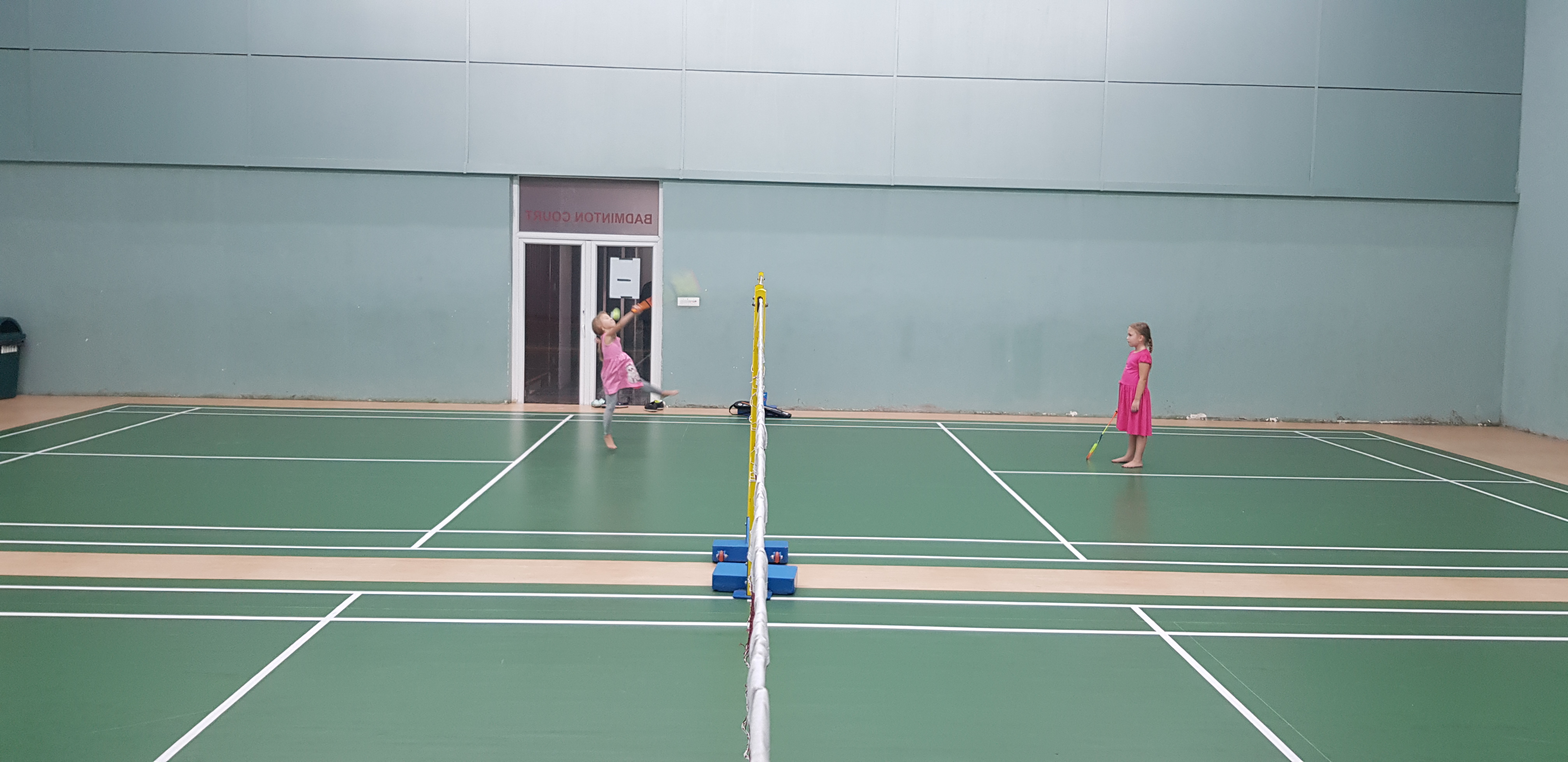
How are you dealing with a pandemic?
We had a fairly strict quarantine. The government took action quickly. The entire service sector, the entire retail was sitting at home. Business has stopped since March. Tax and credit holidays were arranged for people. But they also punished for non-compliance with quarantine: they beat with a stick those who went out into the street.
In fact, if you are at home, you are doing well. It's easier for me because we live in a community where there are shops, pharmacies, a gym, swimming pools, playgrounds inside the residential complex. That is, everything basic is close by, I don't need to go anywhere. In the evening, we can safely walk around the territory with the children.
Now we continue to sit at home. Although our quarantine was lifted in Hyderabad a month ago. The shops are open, but there is not much entertainment. My family and I found one club where you can ride horses. I also want to try to rent a car and drive around the city, go to nature with the whole family. In neighboring Puni, quarantine was again introduced, and very strict. Grocery stores closed. They plan to introduce relief: do a week of quarantine, a week of rest.
How does your family spend their free time?
The first six months we just went out and saw the city. The kids were crazy about the markets. There is something to see not only in the region, but also in neighboring countries. The first couple of months was the rainy season, so we didn't travel much. They began to get out more often when winter began. On New Year's Eve we went to the Himalayas. I even saw Everest - very beautiful. We flew to Goa and rested. After the quarantine, when the heat subsides, I hope we will do it more often. But most of all, we began to appreciate the guests. Sometimes you just want to sit and talk with someone in your own language.
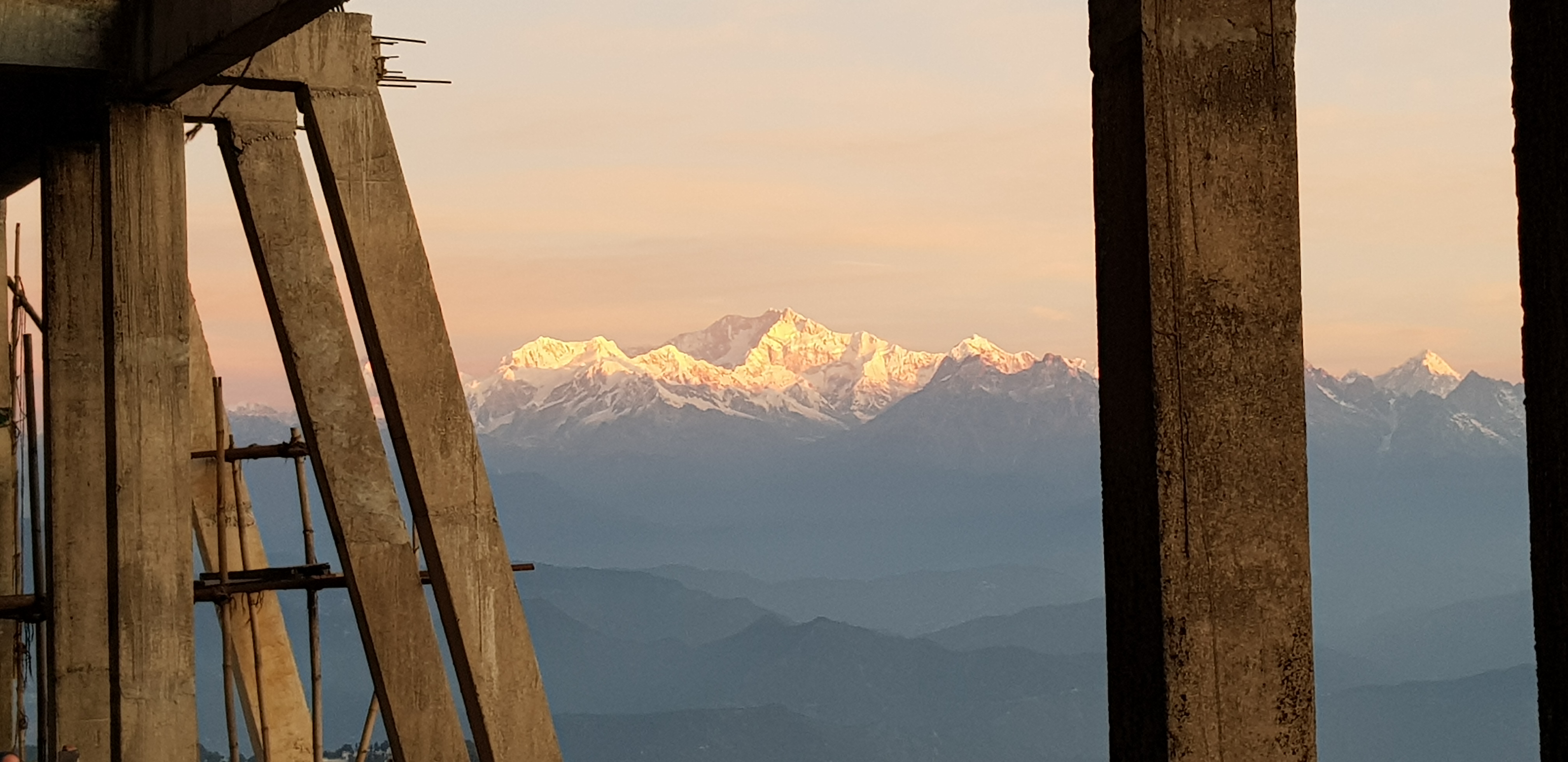
Do you miss Belarus: food, products, types?
We miss some things. Sala is not here, nor is there any caviar. In general, seafood such as canned fish cannot be found here. There is bread, there is a lot of white, but you have to look for rye. From what you can't find at all: cod liver, kefir, cottage cheese and sour cream (but we got the knack for making them ourselves).
And what Indian products, spices or dishes can you not imagine your life without?
I like dal - the local pea soup. It is considered the food of the poor, but it is delicious. I also like butter chicken - chicken in butter-cream sauce. But, probably, I will miss the fruit the most. After all, you can find Indian cuisine in Minsk, all the spices are definitely on Komarovka, but there are no such fruits and vegetables in Belarus.
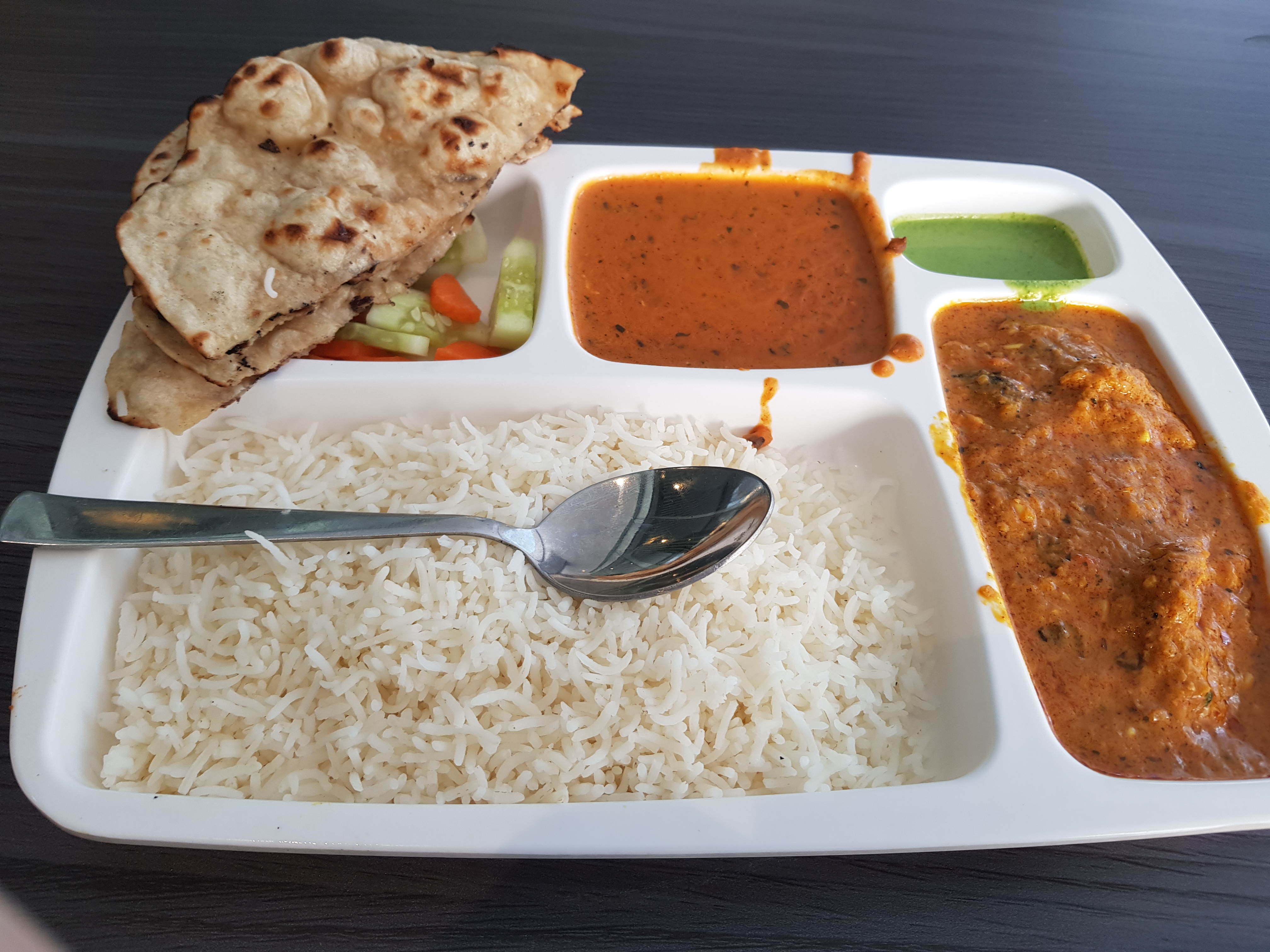
What has changed in you after moving to India?
I grew a beard (laughs). On the one hand, he has become more restrained and thoughtful at work. On the other hand, more irritable. Trying to adapt and adjust all the time is hard. Sometimes you want to be understood perfectly.
You said at the very beginning that India is different for everyone. What is she for you?
She is friendly, varied, beautiful, simple and very childish. It seems to me that Indians are very infantile, as if you are plunging into the world of children. I didn’t have time to see much here, but I don’t regret for a second that I came to India. This is a very interesting experience for me. Here I began to relate to life, things, people in a different way. Everything became somehow easier. I got rid of prejudices. I cannot urge you to move here permanently. But for one or two years, it is definitely worth visiting India for everyone. To look at other people, a different culture and learn something from them.